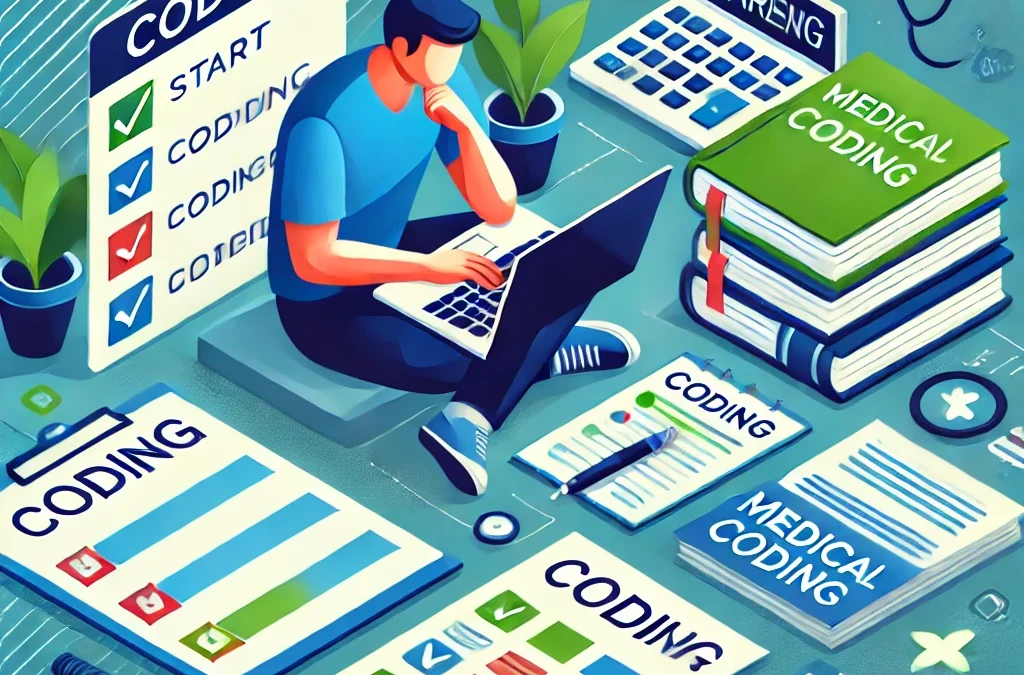How to Start a Career in Medical Coding
A career in medical coding offers stability, growth, and flexibility. If you’re interested in entering this field, follow this step-by-step guide to get started and build a rewarding career.
Introduction to Medical Coding as a Career
Medical coding involves translating healthcare services into standardized codes for billing and record-keeping. It plays a crucial role in the healthcare industry, ensuring that providers are compensated correctly.
Why Choose a Career in Medical Coding?
Medical coding offers flexible work options, including remote jobs. It’s a high-demand career with opportunities for growth, making it an attractive option for those looking for stability.
Essential Skills Needed for Medical Coders
Medical coders need attention to detail, analytical thinking, and familiarity with medical terminology. Strong organizational skills and proficiency with coding software are also essential.
Educational Requirements for Medical Coding
While some employers hire coders with a high school diploma, most prefer candidates with formal training or certifications. Online courses and diploma programs are widely available for beginners.
Getting Certified: Top Certifications for Beginners
- Certified Professional Coder (CPC): Offered by AAPC, focusing on outpatient coding.
- Certified Coding Associate (CCA): A beginner-level certification from AHIMA.
- Certified Billing and Coding Specialist (CBCS): Ideal for those starting in both billing and coding.
How to Choose the Right Medical Coding Program
Look for accredited programs that offer comprehensive training. Consider whether the program aligns with your career goals and provides support for certification exams.
Practical Steps to Begin Your Career
- Complete a medical coding course or diploma program.
- Earn a relevant certification, such as CPC or CCA.
- Apply for internships or entry-level coding positions.
Gaining Experience: Internships and Entry-Level Jobs
Internships and entry-level jobs offer hands-on experience. Some employers may provide on-the-job training, allowing you to build your skills and grow within the organization.
Job Search Strategies for New Medical Coders
Use job boards like Indeed and LinkedIn to search for coding jobs. Tailor your resume to highlight your certifications, skills, and relevant coursework.
Networking in the Medical Coding Community
Joining online forums and attending coding webinars can help you connect with professionals in the field. Networking can also provide job leads and mentorship opportunities.
Remote vs. On-Site Medical Coding Jobs
Remote coding jobs offer flexibility but may require more self-discipline. On-site roles provide hands-on experience and better access to mentorship.
Career Growth Opportunities in Medical Coding
Advanced certifications, such as Certified Coding Specialist (CCS), can open doors to higher-paying roles. Coders can also transition into auditing, compliance, or supervisory positions.
Conclusion
Starting a career in medical coding is a step toward a stable and rewarding future. With the right training, certification, and experience, you can build a career that offers growth and flexibility.
FAQs
What certifications should I get to start a career in medical coding?
Begin with entry-level certifications like CPC, CCA, or CBCS.
Can I work remotely as a medical coder?
Yes, many employers offer remote coding jobs, especially for certified coders.
Do I need a degree to become a medical coder?
No, a degree is not required, but certifications and training are essential.
How long does it take to start a career in medical coding?
It typically takes 6 to 12 months to complete a training program and earn a certification.
What are the career growth opportunities in medical coding?
Coders can advance to roles like auditors, compliance officers, or coding supervisors.


Recent Comments